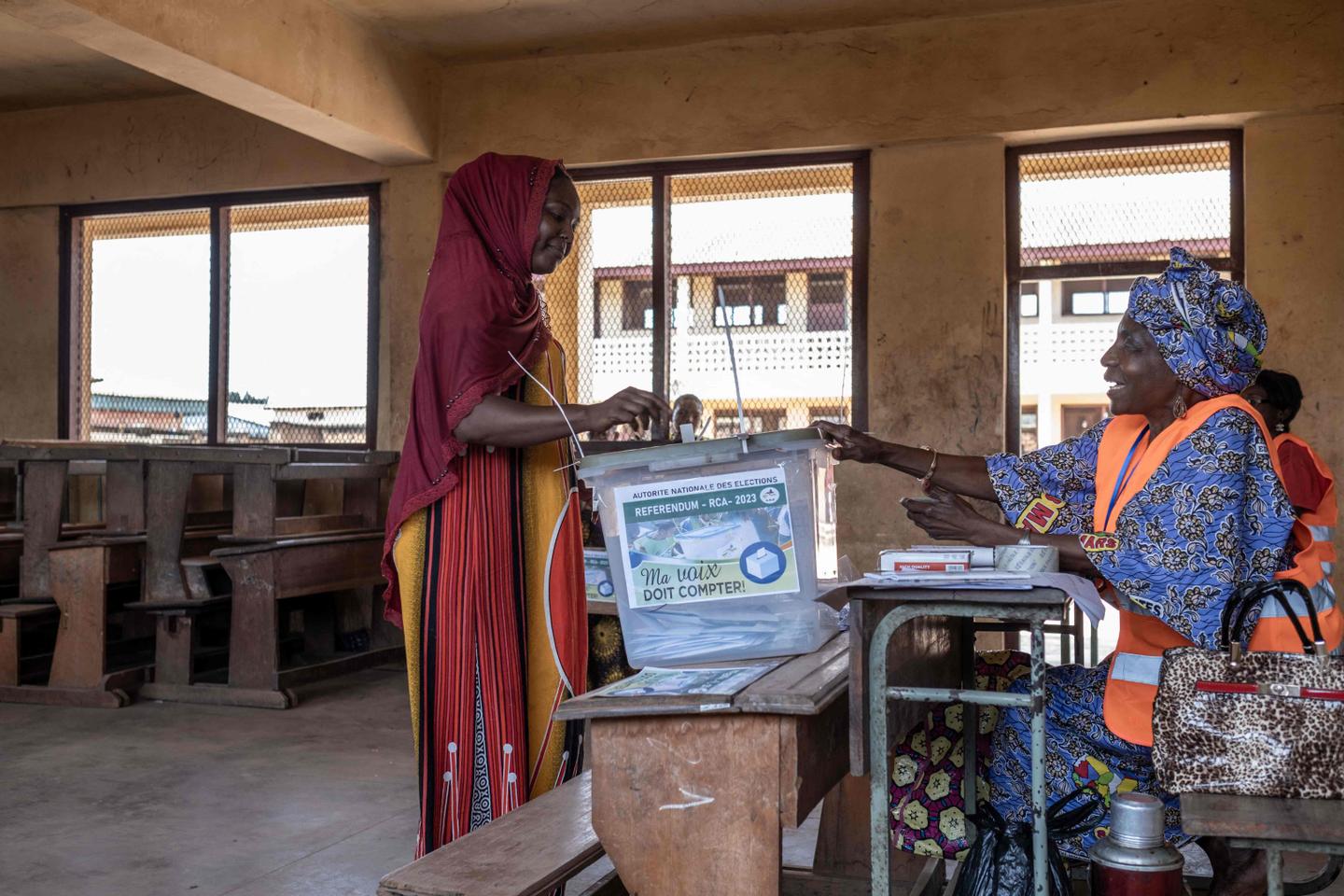
« I have a sense of duty fulfilled. » It was around 9 am in Bangui, when, surrounded by dozens of armed men from the presidential guard, the Rwandan contingent of the Minusca (the United Nations mission in the Central African Republic), and paramilitaries from the Wagner Group, Central African President Faustin-Archange Touadéra slipped his ballot into the ballot box at polling station number one in the Lycée Barthélemy-Boganda. He was setting an example. One of the key issues in the vote on Sunday, July 30, was the turnout, and the leader was hoping that the population would turn out in large numbers to adopt his Constitution.
As a Russian-supplied fighter plane flew low over the Central African capital, the president said he was confident that the people would « vote through the new constitutional law, » which should allow him to run for as many terms as he wishes. « The country has been calm since he [the president] has been here, » said Elsa Sawa, 29, a management student, « so I’d like him to stay as long as Paul Biya in Cameroon [in power since 1982]. » Stability for development is the main argument put forward by supporters of the new constitution, many of whom struggle to comment in detail on the text’s content.
In the polling stations, white « yes » ballots and bright red « no » ballots were waiting for voters. Voters made themselves scarce all day, even in neighborhoods reputed to be strongholds of the ruling party. Usually bustling with activity to the point of making it difficult to get around, the deserted market in PK5, the Muslim quarter of Bangui, considered the country’s economic powerhouse, was unrecognizable. All the stores were closed and the locals politely declined interviews.
« The words ‘someone is a Central African by origin if his or her parents are also Central Africans by origin,’ in the new constitutional law, led Muslims to fear that they would once again be excluded or considered foreigners, » said Ismaïl Lawane, head of the Yaloma district in PK5. « This provision was finally withdrawn, but doubt and mistrust remain among some of our fellow citizens, » he added. The only real unknown factor, however, is voter turnout, which will determine the legitimacy of the new constitutional law. Opposition leaders flooded social media with images of deserted polling stations; these photos are impossible to authenticate.
State of alert

The opposition chose to boycott the ballot, believing it to be a pretext for offering « a presidency for life » to Touadéra, first elected in 2016 and re-elected in 2020. « The Constitution says: two terms. Changing it like that isn’t right. What kind of country are we living in? » asked Marie as she finished her dish of manioc with peanut sauce. She didn’t go to vote and asked Le Monde not to mention her surname. In Lakouanga, her district of Bangui, almost no one dared to admit they abstained, even those without ink marks on their fingers. « People are scared, » said Eloge, an activist with the opposition party Union Pour le Renouveau Centrafricain, before being interrupted by the roar of an army helicopter. « We’re voting under pressure, » he added.
Throughout the day, security was stepped up. Police and military personnel were deployed at every polling station. Dozens of Presidential Guard pick-ups sped through the deserted avenues of the capital. One of the vehicles flew a scarlet flag marked with a Z, the Russian emblem. The paramilitary company Wagner, which has been operating in the country since 2018, helped organize the ballot, but its presence in the capital during the vote was discreet. At the start of the evening, Alexandre Ivanov, who speaks on behalf of the mercenaries in Bangui, said the ballot had been well organized and that the turnout was « very high. »
The provisional results of the referendum are due to be published within eight days, and the Constitutional Court will announce the final results on August 27. In Bangui, no one doubts that the « yes » side will win by a wide margin.
Poster un Commentaire